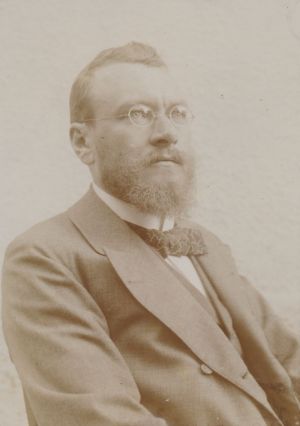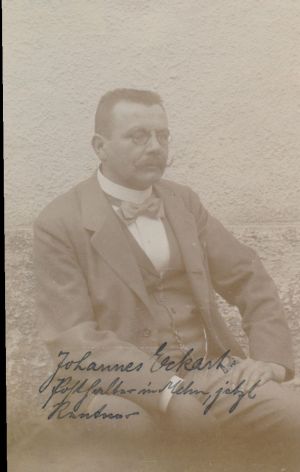Die Posthalterei der Familie Eckart/en: Unterschied zwischen den Versionen
Keine Bearbeitungszusammenfassung |
(Der Seiteninhalt wurde durch einen anderen Text ersetzt: „xx“) |
||
| Zeile 2: | Zeile 2: | ||
xx | |||
====== "Napoleon of Emskirchen" ====== | ====== "Napoleon of Emskirchen" ====== | ||
Version vom 22. Juli 2021, 18:33 Uhr
xx
"Napoleon of Emskirchen"
Maria Christina’s son Carl August Eckart continued the postmaster line of the Eckart family. The successful as well as ruthless "Napoleon of Emskirchen" was able to enlarge his property in and around Emskirchen. In 1815, he bought the inn and the post house from his mother. Despite being the richest man in Emskirchen, he refused to pay the agreed purchase price, until his mother hauled him to the court in 1822. As postmaster, Carl August was able to profit from a modernization in transportation during the first years of his professional career. Express carriages for passenger transportation were introduced in Bavaria in the 1820s. They were much more convenient than the old stagecoaches and twice as fast, with a maximum speed of up to ten kilometers per hour. Carl August ran the post house for 31 years, before retiring in 1846. He then transferred the postmaster’s post to his son Gottfried Eckart, who successfully ran the post house and the inn in Emskirchen for another 19 years.[1]
The End of the Postmaster Line in Munich
After Gottfried Eckart, the second eldest son of Carl August Eckart, had given up the Emskirchen post house in 1865, due to competition from the new railway line, he moved to the neighboring town Neustadt an der Aisch. This is where he set up a new business as postmaster, before moving to Munich in 1877. Before that, he had frequently been to Munich since he had already been a member of the Bavarian Landtag (Bavarian parliament). He had acquired Munich’s post-stable for approximately 50,000 marks, with effect from January 1, 1877. The old post-stable building, in those days the only one in Munich, was located between the streets Bayerstrasse and Schützenstrasse. However, the city government had the building demolished shortly afterwards. The new post house was built on a property at the address Dachauer Strasse 27, close to Munich’s central railway station. The property measured 3,750 square meters. In addition to the post house, there were stables for the overall 121 horses, apartments, dormitories and dining rooms for the 43 postilions, a commercial building and an administration building, where the administrators and the forage and feed masters lived with their families. The carriages and stagecoaches were parked in the courtyard, on an area spanning 500 square meters with a roof made of glass and corrugated sheet metal. Gottfried’s career as Munich postmaster ended abruptly in 1880: He fell ill with typhoid fever, probably caused by contaminated water, and died within a matter of days.
His wife Karoline Eckart continued to run the post-stable. She appointed her sons Carl August and Johannes as managing directors in 1880 and 1882, respectively, as support. Following Karoline’s death in 1901, the brothers officially became Royal Bavarian Post-Equerries. However, the Munich post house had become unprofitable by that time. The brothers sold the post-stable and terminated their contract as postmasters that same year. After nearly 150 years, this marked the end of an era for the Eckarts as postmasters.[2]
References
- ↑ Eckart, Otto and Kamp, Michael: "Die Geschichte der Familie Eckart. Von Franken nach München und Hawaii" (The History of the Eckart Family. From Franconia to Munich and Hawaii), Munich 2015, pages 102ff.
- ↑ Eckart, Otto and Kamp, Michael: "Die Geschichte der Familie Eckart. Von Franken nach München und Hawaii" (The History of the Eckart Family. From Franconia to Munich and Hawaii), Munich 2015, pages 163ff.

